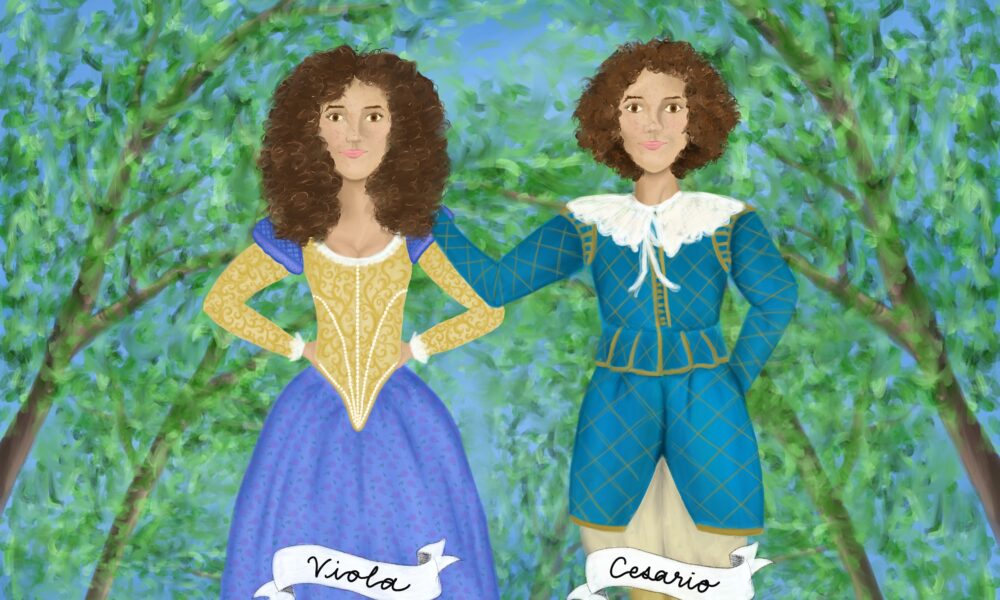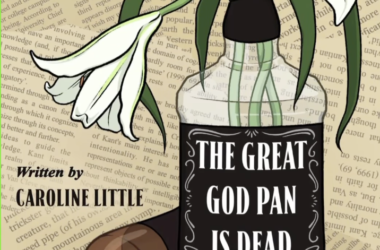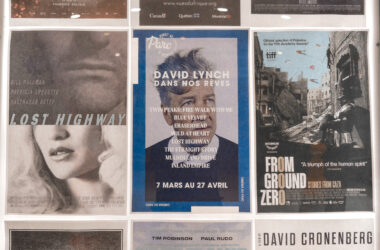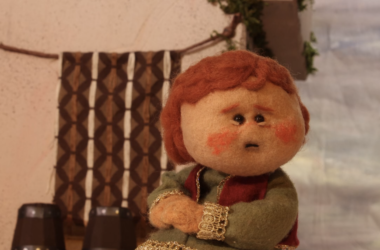In 1592, the bubonic plague hits London. It isn’t the first time, and it won’t be the last. Theatres—including the Globe—close for almost half a year. William Shakespeare writes King Lear.
In 2020 (cautioned groan), Jessica B. Hill is slated to play two Shakespearean heroines at the Canadian Stratford Festival: Helen in All’s Well That Ends Well, and Lady Anne in Richard III. Stratford cancels the season (spitting on Colm Feore is against CDC Guidelines).
“I put my scripts under the couch,” Hill said during the lecture. “I couldn’t look at them; that’s how much it hurt.”
As we enter a different stage of the COVID-19 pandemic, we are forced to reckon with how a return to live performance has changed how we view theatre—and what a world without it would lose.
The Annual Shakespeare Lecture—co-presented by the Friends of the McGill Library and the Stratford Festival—addresses this question, framing it within the broader context of how texts change as the reader’s own lens on life does.
This was no traditional lecture. Rather, it was a conversation between Paul Yachnin, Tomlinson Professor of Shakespeare Studies at McGill, and Hill—who is now set to play Viola in the Stratford Festival’s 2024 production of Twelfth Night. It was, if you will, somewhat like watching a play (and at one point, Hill recited Viola’s Act I Scene V speech to Yachnin’s Olivia, much to the audience’s delight).
Shakespeare is often conceptualized as the epitome of orthodoxy—but we also often meet the cultural conception of Shakespeare before the man himself. We know him before we read him. What he has to say might surprise us.
With the 2020 Stratford season cancelled, Hill eventually turned to playwriting in the absence of a stage. On the page, she discovered a side to Shakespeare that she hadn’t seen before. The resulting play is The Dark Lady, an exploration of the enigmatic muse of Shakespeare’s eponymous sonnets.
“She started to come to life for me, and he started to come for life for me,” Hill said. “This incredible poetess, this incredible proto-feminist, [who] is a huge contender for the Dark Lady Sonnets: Emilia Bassano.”
The Dark Lady looms large over the conversation—Hill and Yachnin highlight what has been omitted from scholarship of the Sonnets for so long: The title “The Dark Lady” may be ambiguous, but the Sonnets themselves are more blatant — Shakespeare says that she’s a Black woman.
“When I finally realized, Shakespeare said, ‘took you a while to get here, didn’t it?’” Yachnin said. “When I teach the Sonnets to undergraduates, or teach Twelfth Night to undergraduates, they’re amazed, because here’s this most canonical of writers—in the world canon—who’s bisexual, and a play also that’s filled with sexual desire that just crosses the borders that they are supposed to respect.”
His words often reach beyond the page. Helen in All’s Well That Ends Well heals an ailing King through medicine—but also through poetry. Shakespeare wrote Twelfth Night—a riotous comedy—around the same time as Hamlet. Both emerge from the death of Shakespeare’s son Hamnet.
“He writes the scene that he never gets to see his twin daughter have with her twin brother, because he passed away,” Hill said.
When Shakespeare reunites Viola and Sebastian, he reaches beyond the veil and mourns his son by creating another world for him. When faced with chasms, whether they emerge from death, or pandemics, or the plague, stories creep in to fill the spaces left by grief.
Shakespeare is far from dead. He continues to change, to unfold, to surprise. Too often, students are told to analyze—to examine a text—but not necessarily to feel it. An inarticulable draw to art might not make for neatly packaged argumentation; but sometimes there’s a feeling of something living under the ink—just out of reach, not ready to emerge quite yet, but waiting for someone to come along, and put it into words. Perhaps we’re still developing the vocabulary required to interrogate Shakespeare.
As Yachnin so aptly put it, “Shakespeare’s been waiting for us to catch up with him.”
A recording of the Shakespeare Lecture is available online. Tickets for the Stratford Festival’s Production of Twelfth Night (April 26-October 26) are available on the Stratford Festival website.









